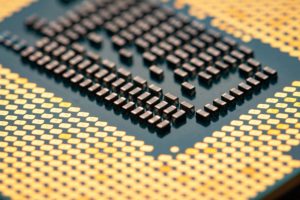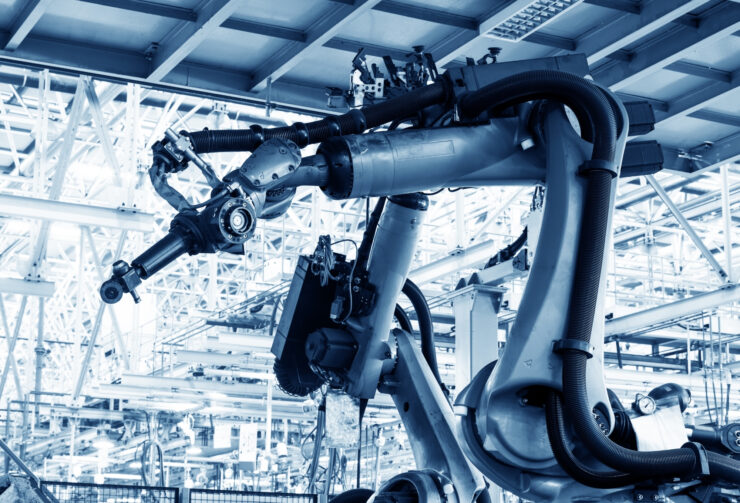At the onset of COVID-19 pandemic, there was a sharp decline in the chip manufacturing industry as tech and other companies forecast a slow growth with little future purchases. This led to a stall in the supply chain and logistics for a couple of chip manufacturing firms, all thanks to a reported 13% decline in universal demand for PCs. Chip manufacturing plants were closed and production adjusted to the industry projections and workers also staying at home to maintain safety. However all this went to bust as more people were staying at home, purchases went up creating panic in semiconductors manufacturing in South Korea and Taiwan. Companies rushed to purchase all available semiconductor manufacturing slots causing unavailability of vital chips to the rest of the manufacturing industry as seen in the automotive industry.
So, what would the chip shortage mean to the service drive?
Car Inventory Put on Hold
Chip shortages have occurred before but not due to a pandemic. Previously, in 1988 and 1994, cases of chip shortage were due to high demand and numerous tech inventions. However, their impact was not as grave as the 2020-2021 impact. It didn’t hit the globe as it has, and solutions were as quick as forming chip pacts. Today, the service drive has reduced production as chip shortages continue. Reduced production is continuously slowing down automaker’s ability to invent products. Senior director of partner performance in Automotive Mastermind echoed the pandemic impact explaining that they’ll be little to no vehicle inventory in 2021 if the condition persists.
In the first quarter of the year, Car and Driver report that the industry was looking into producing one million fewer cars at $61 billion. So, as the problem stems from the pandemic, it’s clear that the semiconductor producers changed their preference from the automotive industry to others from the reduced orders in fear of the pandemic. Some unfortunate automakers facing chip shortages and have put production on hold are:
- Toyota (halted production in the Czech Republic)
- Honda (some in the US and Canada)
- Volkswagen (Portugal)
- Mitsubishi (US)
- Nissan (US and Mexico)
Too Lean for Extra Inventory
 During production, automakers are working extra-lean with the Just-In-Time manufacturing process. Automakers work at all costs to minimize wastes. So, for most components, their orders are solely made of what is needed. Unfortunately, chips have a lot of demand, and delivery may not be like other components. According to Shawn DuBravac, IPC’s Chief Economist, there’s a 12-week lead time for the delivery of semiconductors. Silicon manufacturers have a built-to-order strategy. This strategy ensures inventories are not put on hold.
During production, automakers are working extra-lean with the Just-In-Time manufacturing process. Automakers work at all costs to minimize wastes. So, for most components, their orders are solely made of what is needed. Unfortunately, chips have a lot of demand, and delivery may not be like other components. According to Shawn DuBravac, IPC’s Chief Economist, there’s a 12-week lead time for the delivery of semiconductors. Silicon manufacturers have a built-to-order strategy. This strategy ensures inventories are not put on hold.
This is to avoid aspects like decay in prices which might result in a build-up of old technology. Since the stop of vehicle manufacturing back in February and March, the decision affected the whole supply chain. Ordering of chips stopped, and consequently, the suppliers took other orders leaving the service drive without a chip supplier.
The Service Drive Moved Down the Line by In-Demand Products
In-demand products (game consoles, computers, smartphones) have indicated a continuous growth even with the pandemic. As a result, their demand for chips has never ceased. Unfortunately, the service drive is left suffering. Its suppliers went on creating chips for in-demand products. According to CNBC, TSMC sales were only 3% compared to 48% for smartphones in 2020. We, therefore, can’t refute the fact that tech companies are taking the lead with advanced brims. For a long time now, their contracts with foundries remain.
And, they have at no time reduced their orders. However, the good news is that the foundries have it at hand, given that TSMC is a vital foundry, and they plan to help out soon by growing its capacity by $28 billion. Besides, car manufacturers use thoroughly “fit” automotive-grade chips for durability and reliability. So, according to the Trendforce report, it’s problematic for the industry to change over to any other chip supplier.
Did you know that you cannot even sell your $30,000 car if you miss out on a mere 10-cent chip? Today, cars use scores of tiny chips that work as power management or perform numerous other functions. They have microcontrollers which are helpful for tasks such as power steering. Therefore, chip shortage is enough to stop the service drive from running. As the Chip shortage continues to upset all from play station 5 to PC production, its return is unknown. Will autos ever get back to the queue?












